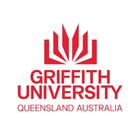Bachelor of Engineering (Honours)/Bachelor of Science
Bachelor of Engineering (Honours)/Bachelor of Science
Engineering is a precise practice, and this double degree will arm you with the science disciplines to hone your technical precision. You’ll study applied mathematics or physics and learn to balance the numbers with the art of creative and critical thinking. You’ll also gain highly useful skills in mathematical modelling….
Categories
COURSE DESCRIPTION
Engineering is a precise practice, and this double degree will arm you with the science disciplines to hone your technical precision. You’ll study applied mathematics or physics and learn to balance the numbers with the art of creative and critical thinking. You’ll also gain highly useful skills in mathematical modelling.
In your final year, you can enhance your employability through an industry placement. With an internationally recognised qualification, you’ll be prepared for work on complex projects in Australia and overseas.
Industry and expert connections
What makes our engineering and science double degree stand out is the opportunity to put what you learn in the classroom into practice through work-integrated learning. We have a wide range of industry contacts and partnerships, ensuring you get to experience hands-on learning throughout your study. In your final year, you’ll enhance your employability by completing a project within industry.
Graduate outcomes
You’ll graduate with a degree accredited by the national engineering body, Engineers Australia, and depending on your specialisation, you’ll also be eligible for membership with the Australian Institute of Physics or the Australian Mathematical Society.
With highly-sought after qualifications in engineering and science, you’ll find inspiring career opportunities in government, construction, telecommunications, mining, oil, smelting and manufacturing industries.
Majors
Changes effective for students commencing from Trimester 22020 onwards:
Engineering: Civil Engineering; Electronic Engineering; Environmental Engineering; Mechanical Engineering.
Science: Applied Mathematics; Physics.
MY CAREER OPPORTUNITIES
Key employment sectors: Government; Construction; Telecommunications; Mining; Manufacturing.
Potential job outcomes: Civil engineer; Electrical engineer; Electrical engineering technician; Electronic engineering draftsperson; Environmental engineer; Mechanical engineer; Mining engineer.
REQUIREMENTS
Standard academic entry to our undergraduate degrees requires completion of secondary school comparable to Australian Year 12 or equivalent academic achievement.
The minimum English language requirements for such applicants for entry to this program are as follows:
- A minimum overall band score of 6.5 on IELTS (Academic) with no sub-score of less than 6.0
- OR a minimum score of 575 on TOEFL
- OR an internet-based (iBT) TOEFL score of 79 (no sub-score less than 19)
- OR no score less than 3+ in each skill of the ISLPR (conducted by ISLPR Language Services only)
- OR a minimum overall score of 176 (no score less than 169) on C1 Advanced (formerly Cambridge Certificate in Advanced English) or C2 Proficiency (formerly Cambridge Certificate of Proficiency in English)
- OR an overall score of 58 in the Pearson Test of English (Academic) with no score less than 50.
EDUCATIONAL INSTITUTION
Griffith University is ranked in the top 2% of universities worldwide and strives to create a brighter future for all by prioritising innovation and social impact. We are committed to providing international students with quality education, guidance, and support. With Australia’s most awarded teachers, Griffith University offers a full suite of undergraduate, postgraduate and research degrees in areas including architecture, construction, and planning; business and government; criminology and law; education; engineering, IT and aviation; humanities, languages and social science; medicine, dentistry and health; music and performing arts; science and environment; visual and creative arts.




